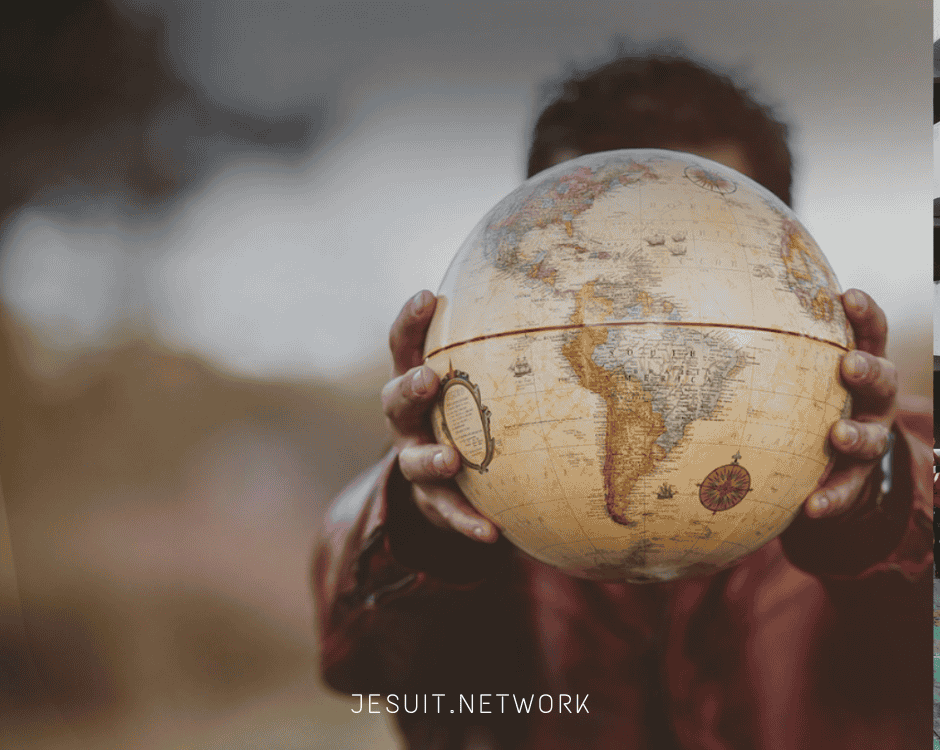This website uses cookies so that we can provide you with the best user experience possible. Cookie information is stored in your browser and performs functions such as recognising you when you return to our website and helping our team to understand which sections of the website you find most interesting and useful.
The international conference on Laudato Si’ on its third anniversary spoke about three urgent engagements in responding to the social and environmental challenges that our world faces in the current times.
First is the economics of the present situation and its urgency and for which Pope Francis has already spoken with oil companies and urged economic leaders for greater dialogue and social inclusion in the business and financial world.
Second, there was a clear engagement with children and youth, seeing and listening to their expression of concern and hope, ensuring that there is space for young people and indigenous cultures in fostering an integral ecology. The youth will be a focus during the 2018 Synod of Bishops in October, along with faith and vocational discernment.
The third dimension of the needed global engagements was animated during the parallel sessions where Indigenous Peoples not only from the Amazonia but also from the Asia Pacific and Oceania shared their stories. For this article, we highlight this third dimension.
Asia Pacific brings about an urgency both from the context of small islands and the disappearance of their cultures and people, and from the problems of many upland and forest-based cultures that are caught in conflicts, questions of human rights, and lack of participation in how basic services are delivered. It is this context that was shared by the 10 members of cultural and traditional communities from Asia-Pacific and Oceania countries that Ecojesuit facilitated to join the international conference.
The urgency of dialogue among various stakeholders at all levels to pursue doable, participatory lines of action to address the critical issues afflicting the Earth, our common home, was echoed and re-echoed throughout the conference. Laud ato Si’ enjoins “[all] of us [to] cooperate as instruments of God for the care of creation, each according to his or her own culture, experience, involvements and talents.” (LS 14)
In the group meetings on the parallel session on Youth and Indigenous Peoples, the representatives from Asia and Pacific shared their specific contexts and aspects of their communities’ relationship with nature, which live out the sense of integral ecology promoted by Laudato Si’. They also shared on the challenges in their communities and the hopes they have for the future.
Ms Mercy Pakiwag, the Deputy School Manager of Apu Palamguwan Cultural Education Center (APC) in northern Mindanao, Philippines, shared that the APC is a source of hope in the Pulangiyen community in Bendum where she belongs and in neighboring villages in the Upper Pulangi watershed. APC is an upland indigenous school formally recognized by government that uses mother tongue-based approach in education and integrates indigenous knowledge in the curriculum, seeking to make education responsive to the realities of indigenous communities.
Mr Somnuek Sriphornphunsawat related on the struggles of the Karen communities along the Thailand-Burma border. The Pgawkeryaw Karen have long been living in and protecting their forest areas and practicing traditional rotational farming that allows people to use portions of the forest lands to grow a diversity of crops that can be harvested at different times, after which the land is allowed to revert back to the forest after a few years of cultivation. However, the Thai government rejected this traditional farming system, representing the collective Pgawkeryaw knowledge, as inefficient and destructive of the forests. There is a recent policy that recognizes rotational farming, but this has yet to be meaningfully enforced. The forced permanent agriculture and promotion of commercial crops have had a devastating effect on the natural environment.
Sharing with the Spanish-speaking group of Amazonia Indigenous Peoples, Ms. Heather Ketebengang of the Palau Conservation Society, shared about the situation of the traditional communities in the island state of Palau. Other participants from the Pacific island states also communicated the urgency of ensuring that global average temperatures do not exceed 1.5 degrees Celsius from pre-industrial levels for the survival of their small island states and peoples.
Mr Jason Menaling, also a Pulangiyen community member and a community forest manager with the Environmental Science for Social Change, a Jesuit research and training organization in the Philippines, shared about the role of the youth in managing their forests through a youth program that is partly supported by the Flights for Forests programme of the Jesuit Conference Asia Pacific. Not only are these youth seeking to stop illegal logging, they are also actively extending the forest cover. Extending the forest through agroforestry and assisted natural regeneration of forests along the Pantaron Range helps minimize soil erosion and rehabilitates a stretch of stream for a better water source. The youth do their part by removing the grasses and protecting seedlings and by controlling disturbances in the forest areas, germination of native tree species in regenerating forest areas is triggered.
The cultural practices of Indigenous Peoples that contribute to managing our common home are typically dispersed and scattered, thus it is crucial that their voices are pulled together through dialogues and collaborative, inclusive action.
Ecojesuit facilitated the participation of representatives from indigenous and traditional communities from Asia Pacific and the Oceania. They were: Iakop Ioanis from Pohnpei, Federated States of Micronesia; Somnuek Sriphornphunsawat from Chiang Mai, Thailand; Kristina Reimers from Majuro, Marshall Islands; Heather Ketebengang from Koror, Palau; Teresa Mecer from Kalimantan, and Leonardus Tumuka and Honoratus Pigai from Papua, Indonesia; Dallay Annawi from northern Luzon and Mercy Pakiwag and Jason Menaling from northern Mindanao, Philippines.





